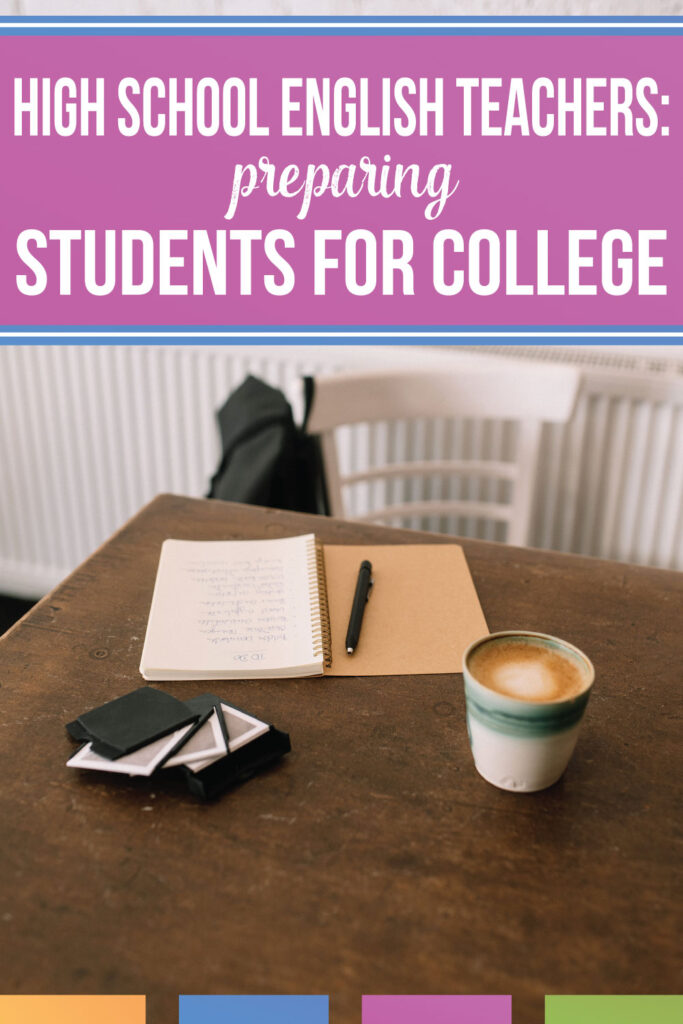Looking for how to prepare high school English students for college? We all are.
I’ve known Ms. F. for years on digital platforms. I’ve found her both passionate and helpful. She has a unique perspective: she taught high school English before teaching college English.
When I had questions about how to best prepare my high school English students for college, her responses gave me so much insight that I asked if I could share them with my audience. Thankfully, she agreed.
Keep reading to see what questions I asked (what questions would you ask a college professor?) and to read her responses.

Thinking and reading and writing critically and doing solid analysis is a skill I see almost all of my English 101 students struggle with. I ask my students “why?” and “so what?” a lot. They need to learn to back up their claims more. We also have in-class discussions on readings where I give my students question starters based on higher level Bloom’s and have them create questions to ask of each other. I call them Higher Order Thinking (H.O.T) Book Talks.
The other issue I see is that students aren’t being transitioned into the current MLA format. They are still underlining titles (which went out over 10 years ago), and messing with fonts etc.
Subscribe to our mailing list to receive updates about new blog posts, freebies, and teaching resources!
We will send you emails, but we will never sell your address.
You can change your mind at any time by clicking the unsubscribe link in the footer of any email you receive from us, or by contacting us at [email protected]. We will treat your information with respect. For more information about our privacy practices please visit our website. By clicking below, you agree that we may process your information in accordance with these terms.
We use Mailchimp as our marketing platform. By clicking below to subscribe, you acknowledge that your information will be transferred to Mailchimp for processing. Learn more about Mailchimp’s privacy practices here.

